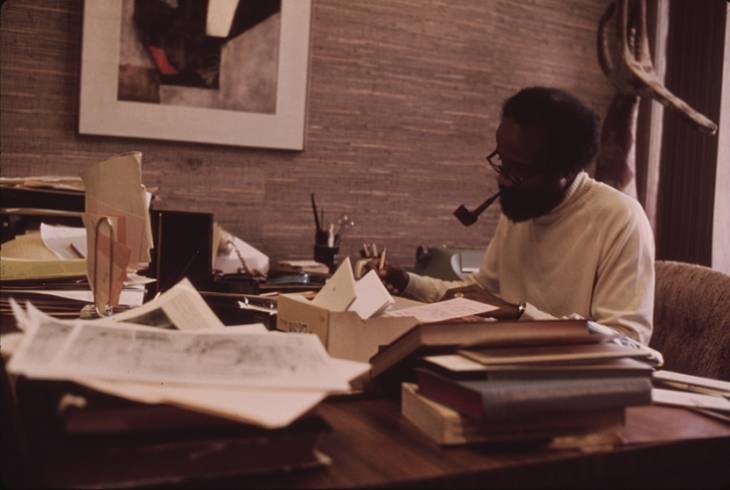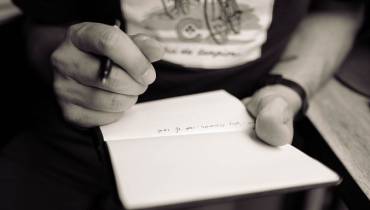Why Every Writer Needs Proper Research to Write Fiction

From the outside, a writer appears as an artist dreaming up new worlds that may or may not have anything in common with the one everyone lives in.
While it is true that good writers will make you suspend your beliefs, realities, and trust what’s written on the page – digital or hard printed, their creations may actually be more grounded in reality than you think.
If you plan on writing a novel or other form of fiction, one of the primary things to know is that a lot of research should be involved. The best writers are often the best researchers as well.
If you want to know why research is essential for writers and how to do it properly, let's get to it.
Reasons Research Is Essential for Fiction Writers

Lerone Bennett Jr., author. scholar, and social historian, who was long-time executive editor at Ebony Magazine, working in his office at Johnson Publishing Company in Chicago, Oct 1973. Photo by John H. White /public domain
Non-fiction writers cannot live without it; research is the bread and butter of their creations because their work is based in fact. But that doesn’t mean that novelists, whose work is based in imagination, should be exempted from doing research. Facts and details taken straight from reality represent an excellent basis for building believable plots and fictional characters.
There is another advantage of researching as a fiction writer. If one of your characters is, say, a child aspiring to a career as a microbiologist, you will need to do background research before penning your story. In this case, it will serve you well to look in the career itself and other seemingly minor details like children's microscopes your character might use to get a grasp of what your hero’s daily life could look like. This way you can present a realistic picture of the character’s experiences to readers.
Research can help you walk into your character’s shoes. Furthermore, it might give you new ideas about where to take the plot. It can also help you overcome obstacles in areas that you might feel that you don’t understand very well or have noticeable plot holes.
And one of the best ways to research is to read a wide range of relevant books and resources. .
Start Conducting Research by Reading Widely
The best writers are also the best readers. They are voracious readers of both fiction and non-fiction. The beauty of reading widely is that there is no better source for your research than other books.
That obviously doesn’t mean that you should only grab a novel that’s pretty much like the one you want to write and take all your ideas and plot from there. While you can study the novel and learn a lot from it, basing your entire work on that book can be deemed plagiarism, which is not the way to go if you want to be recognized and respected as credible writer.
Research essentially means studying and documenting aspects of an idea, place, or subject from various credible sources in order to collect information about the subject. For instance, if you want to write a historical novel, it would help to read books about the respective period you want the action of your book to take place in.
You can also make calls, conduct interviews and visit places as part of your research. As long as you involve multiple credible sources and make thorough enquires, that research can make a huge difference in building your story.
Researching Beforehand Vs. Researching as You Go Along
So, should you have your entire research ready before you start writing? This is a critical question to ask yourself. And its answer depends on the type of person you are and the type of fiction work you are creating. The good news is that there are no set-in-stone rules.
You will find that many prolific writers perform the necessary research as they go along. If you are this type of a writer, that can mean that you don’t have to spend a lot of time preparing to write your novel instead of actually getting down to writing it.
On the other hand, you may not like the idea of stopping in the middle of your writing flow to go out to investigate different aspects within your work all the time. That can be very distracting for some writers and you may not be the type of writer that takes to interruptions well.
It is up to you to establish what kind of writer you are so you can determine the best approach for you. However, regardless of whether you chose to do your research beforehand or on the go, each time you hit a writing block, you’ll need to step way from the work a little and go back to research.
The quality of your research could very well determine the quality of your finished creative work. In deed, the best writers are often the best researchers.






![81% of Brits Plan to Support Small Businesses this Christmas [Study]](/sites/default/files/styles/video_thumbnail_bottom/public/woman-shopping-small-business.jpeg?itok=SK3JqPQ_)













